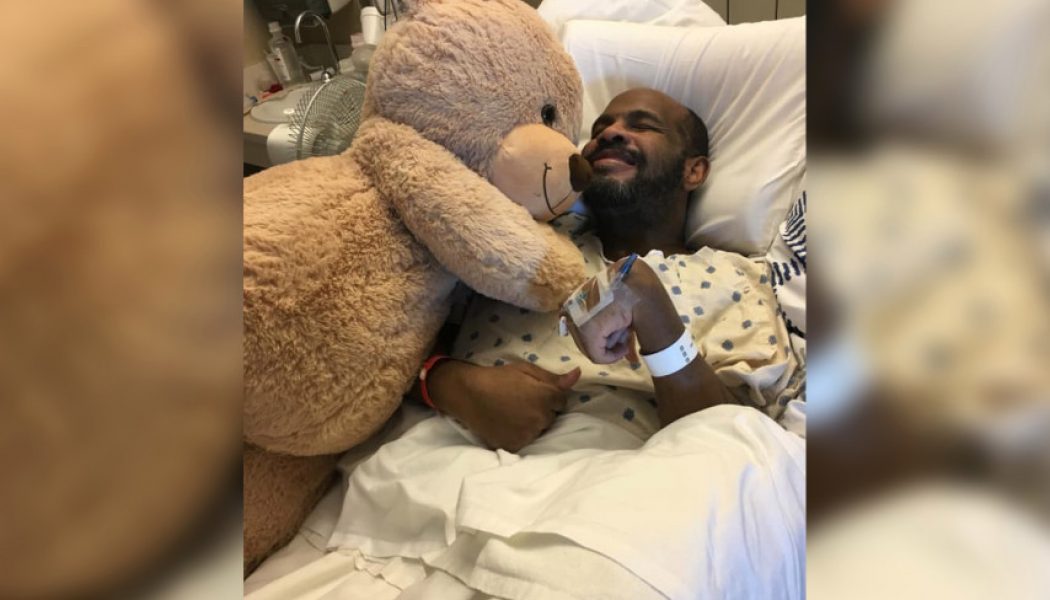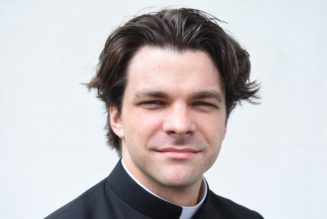
Last month, a disabled, 46-year-old African American man was euthanized without his consent or that of his wife. But rather than exploding amid our racial-justice moment, the story hardly yielded a peep from those who control our national discourse.
In 2017, Michael Hickson suffered a brain injury that left him paralyzed. Still, he was able to enjoy many activities: having books read to him, listening to music, answering trivia questions. He had memory problems, but he recalled his birthday and Social Security number with ease. Michael was leading the kind of life many people with disabilities do: not without difficulties but intrinsically valuable and dignified.
Then Michael contracted COVID-19 and was admitted to St. David’s Medical Center of South Austin, Texas. A disagreement over his care led to medical decision-making being taken away from his wife and given to the state and his medical team.
Michael didn’t do well and needed intensive care. His wife, Melissa, apparently did not trust his medical team and decided to (legally) record the exchange she had with her husband’s doctor.
As the recording shows, they agreed that Michael should not be intubated, but Melissa still wanted Michael to be treated aggressively. The doctor insisted aggressive treatment wouldn’t “help him improve” and “right now, his quality of life . . . he doesn’t have much of one.”
Melissa was taken aback: “What do you mean?” she asked. “Because he’s paralyzed with a brain injury, he doesn’t have quality of life?”
“Correct,” the doctor flatly replied.
Pressed further by Melissa, who admirably kept her cool, the doctor admitted he’d had three patients survive who were in Michael’s situation but claimed her husband’s case “doesn’t fit those three.”
Michael’s “quality of life is different from theirs,” she was told. The others “were walking and talking people.”
Melissa tried to respond, but the doctor had had enough. “I don’t mean to be frank or abrasive, but at this point, we are going to do what we feel is best for him along with the state, and this is what we decided.”
Melissa did get in one last shot by telling him that this was a decision to kill her husband. And she had good reason to think so: Giving her husband food, water, oxygen and medicine would have not been burdensome treatment. And Michael may have beaten the odds.
The hospital had plenty of space for him. The issue, the doctor made clear, was Michael’s disability. The state and the hospital decided that they shouldn’t try to save someone with his disabilities.
After pro-life journalists broke the story on June 26, the National Council on Disability publicly called on the federal Office of Civil Rights at the Department of Health and Human Services to investigate the hospital for violating Michael’s civil rights.
“When a medical facility makes a decision to deny medical care to a person with a disability that is based on, or influenced by, biased views about life with a disability, it runs afoul of federal civil rights laws,” the group said.
Yet when the Washington Post, a paper otherwise all in on outing structural racism, picked up the story, it framed Melissa’s claims skeptically and credulously accepted the hospital’s word that “it wasn’t possible to save” Michael and that none of its decisions was made on the basis of his disability.
Sorry, but the recording was clear: An institution with power over Michael’s very life had deemed it a life unworthy of life.
Owing to structural health disparities, many African Americans have a justified fear of being treated like “throwaway people” in a clinical setting, particularly when it comes to so-called “end-of-life” decisions.
And because doctors are often ableist in their assumptions, the vulnerability of African American patients are magnified when they are disabled. Health providers consistently rate the quality of life of their disabled patients worse than the patients themselves.
When confronted with the fact that patients generally prefer length of life to quality of life, many physicians find themselves “surprised” and admit: “We think we know what is best for a patient, but this is often wrong.” It’s appalling.
If you care about racial justice, remember Michael Hickson. Say his name. Tell his story.
Charles Camosy is associate professor of theological and social ethics at Fordham University and author of the new book “Resisting Throwaway Culture.”
Twitter: @CCamosy









